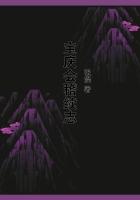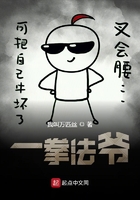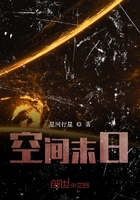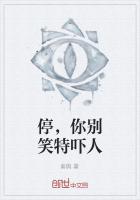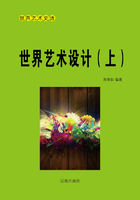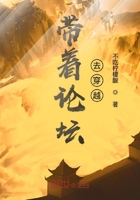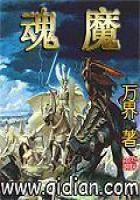"I cannot. I have stayed too long. And now I must ride without a gun or knife to protect me. Any Indian that I meet can scalp me. Do you understand now what disarming means, Maria? If I had gone with my boy, with my brave Jack, I could at least have sold my life to its last drop."
"In the morning, Roberto, Lopez Navarro will get you a gun.
Oh, if you must go, do not go unarmed! There are ten thousand Comanche between here and the Brazos."
"How could I look Lopez Navarro in the face? Or any other man? No, no! I must win back my arms, before I can walk the streets of San Antonio again."
He took her in his arms, he kissed her eyes, her cheeks, her lips, murmuring tender little Spanish words that meant, oh, so much, to the wretched woman!--words she had taught him with kisses--words he never used but to her ears only.
She clung to his neck, to his hands, to his feet; she made his farewell an unspeakable agony. At last he laid her upon her couch, sobbing and shrieking like a child in an extremity of physical anguish. But he did not blame her. Her impetuosities, her unreasonable extravagances, were a part of her nature, her race, and her character. He did not expect a weak, excitable woman to become suddenly a creature of flame and steel.
But it was a wonderful rest to his exhausted body and soul to turn from her to Antonia. She led him quietly to his chair by the parlor fire. She gave him food and wine. She listened patiently, but with a living sympathy, to his wrong. She endorsed, with a clasp of his hand and a smile, his purpose.
And she said, almost cheerfully:
"You have not given up all your arms, father. When I first heard of the edict, I hid in my own room the rifle, the powder and the shot, which were in your study. Paola has knives in the stable; plenty of them. Get one from him."
Good news is a very relative thing. This information made the doctor feel as if all were now easy and possible. The words he said to her, Antonia never forgot. They sang in her heart like music, and led her on through many a difficult path. The conversation then turned upon money matters, and Antonia received the key of his study, and full directions as to the gold and papers secreted there.
Then Isabel was awakened, and the rifle brought down; and Paola saddled the fleetest horse in the stable, and after one solemn five minutes with his daughter, Robert Worth rode away into the midnight darkness, and into a chaos of public events of which no man living could forecast the outcome.
Rode away from wife and children and home; leaving behind him the love and labor of his lifetime--"The thousand sweet, still joys of such As hand in hand face earthly life."
For what? For justice, for ******* of thought and action, for the rights of his manhood, for the brotherhood of race and religion and country. Antonia and Isabel stood hand in hand at the same lattice from which the Senora had watched her son away, and in a dim, uncertain manner these thoughts connected themselves in each mind with the same mournful inquiry--Is it worth while?
As the beat of the horse's hoofs died away, they turned. The night was cold but clear, and the sky appeared so high that their eyes throbbed as they gazed upward at the grand arch, sprinkled with suns and worlds. Suddenly into the tranquil spaces there was flung a sound of joy and revelry; and the girls stepped to a lattice at the end of the corridor and looked out.
The residencia of Don Salvo Valasco was clearly visible from this site. They saw that it was illuminated throughout.
Lovely women, shining with jewels, and soldiers in scarlet and gold, were chatting through the graceful movements of the danza, or executing the more brilliant Jota Aragonesa. The misty beauty of white lace mantillas, the glitter and color of fans and festival dresses, made a moving picture of great beauty.
And as they watched it there was a cessation of the dance, followed by the rapid sweep of a powerful hand over the strings of a guitar. Then a group of officers stepped together, and a great wave of melodious song, solemn and triumphant, thrilled the night. It was the national hymn.
Antonia and Isabel knew it. Every word beat upon their hearts. The power of association, the charm of a stately, fervent melody was upon them.
"It is Senor Higadillos who leads," whispered Isabel, as a resonant voice, powerful and sweet, cried--"O list to the summons! The blood of our sires, Boils high in our veins, and to vengeance inspires!
Who bows to the yoke? who bends to the blow?" and, without a moment's hesitation, the answer came in a chorus of enthusiastic cadences--"No hero will bend, no Mexican bow;
Our country in tears sends her sons to the fight, To conquer, or die, for our land and our right."
"You see, the Mexicans think THEY are in the right--THEY are patriots also, Antonia."
The sorrowful girl spoke like a puzzled child, fretfully and uncertainly, and Antonia led her silently away. What could she answer? And when she remembered the dear fugitive, riding alone through the midnight--riding now for life and liberty--she could not help the uprising again of that cold benumbing question--"Is it worth while?"


